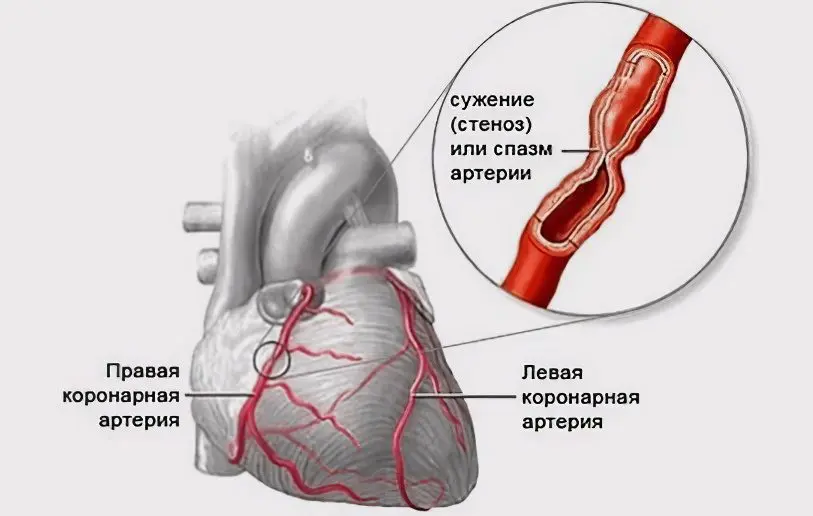Angina pectoris is a sharp severe pain in some parts of the heart, which occurs due to a lack of blood supply. This happens because the vessels become clogged or narrowed.
When angina pectoris makes itself felt, the patient feels a compressive pain in the chest area, which can be given to the jaw, arm, neck, shoulder. Pain in angina pectoris can last from thirty seconds to thirty minutes. But most often it lasts for three minutes and passes if the patient has taken any medicine or just lay down to rest.
Angina pectoris is a symptom of transient myocardial ischemia. As a result, an acute discrepancy between the supply of oxygen to the myocardium and its needs for it develops in the body.
In people with coronary heart disease, angina pectoris occurs in 50% of cases or even more often. Women suffer from angina attacks less frequently than men. At a young age, angina pectoris develops in women in 6-20% of cases, and in men in 2-15% of cases. After the age of 55, these indicators level off, and gender ceases to matter. This is due to the fact that after menopause, the level of estrogen decreases, and hormones cease to protect the female body from various damages.

Causes of angina attacks
With some stress on the heart, there is a lack of oxygen, which leads to sharp pains in the region of the heart. And the reasons can be different: due to strong physical exertion, eating heavy or spicy food, stress, hypothermia or due to heat, after drinking alcoholic beverages.
[Video] Dr. Berg – The main cause of vascular calcification! Calcium in the vessels:









